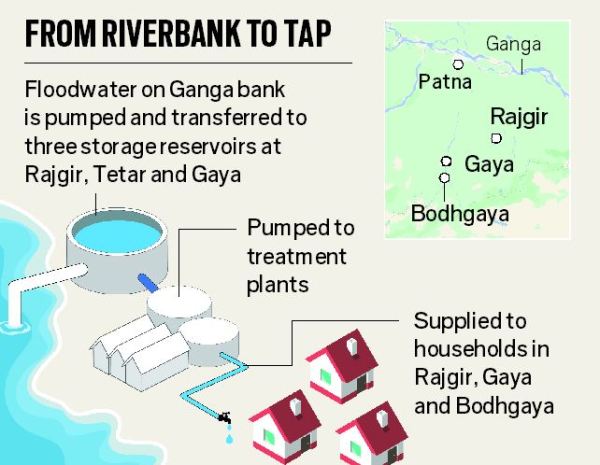‘Bihar govt’s plan to bar NGOs from running children’s homes uncalled for’: TISS professor who headed audit team
4 min read For the past several months, a children’s home in Bihar’s Muzaffarpur has been at the centre of a storm over allegations that several girls living there were raped and tortured. On 5 August, several Opposition parties came together at Delhi’s Jantar Mantar to condemn the crimes, and to seek a speedy investigation and trial in the matter.
For the past several months, a children’s home in Bihar’s Muzaffarpur has been at the centre of a storm over allegations that several girls living there were raped and tortured. On 5 August, several Opposition parties came together at Delhi’s Jantar Mantar to condemn the crimes, and to seek a speedy investigation and trial in the matter.
The abuse of the inmates of the home was first brought to the notice of the Bihar government by a team of Mumbai’s Tata Institute of Social Sciences (TISS). The team members were from the institute’s field action project ‘Koshish’, which seeks to address homelessness and destitution.
In an interview with Firstpost, assistant professor Mohammed Tarique, who led the seven-member team which conducted the audit, spoke about the state government’s response to the report. He also responded to Chief Minister Nitish Kumar’s statement that NGOs running such centres have been a “flaw in the system” and that the government will take over the administration of all children’s homes over a period of time.
What has been the Bihar government’s response to the findings and recommendations of the TISS team?
There were different kinds of recommendations for different categories of institutions (110 of them were inspected in all). In a few cases, major intervention was required. The state government called all district level officials of the social welfare department to Patna for a meeting, and shared the findings of the report with them. The principal secretary gave an assurance that the government is fully committed to the report, and will act on its recommendations. The government also called on the chairpersons of the Child Welfare Committees from all districts of the state to sensitise them about the issue.
The Muzaffarpur shelter home rape case was unfortunate, but all shelter homes inspected did not need such legal intervention.
Chief Minister Nitish Kumar recently announced the government’s intention to phase out the practice of NGOs running children’s homes. Do you agree with this proposal?
Personally, I do not think this will help much. The government’s thinking behind such a move appears to be that if one approach did not work, another approach needs to be tried out. I believe that the issue is not so much who is running the institution; it’s not that such instances of abuse are reported from all homes run by NGOs, while on the other hand, it is also possible that similar abuse may take place in homes run by the government as well. What is required in the long-term is a better system for monitoring institutions for children in need of care and protection — whether they are run by the government or by voluntary organisations.
The question is whether the government has the capacity to run so many homes by itself. For years, the accepted rationale has been that the government can create systems, while civil society organisations can assist it in running those systems, and in bringing into the picture a compassionate outlook required for such tasks. There are a lot of programmes in which NGOs are doing good work and assisting the government.
What happened in the case of the children’s home in Muzaffarpur was that several mechanisms meant to ensure protection for the inmates failed. This was a very rare case, one in which a number of stakeholders in child protection become a part of the crime. It would not be correct to make any structural changes based on this case alone.
What actions can authorities under the Juvenile Justice Act take to prevent abuse of inmates of children’s homes, and to ensure their welfare?
Often, the measures for child protection laid down in the law are not implemented in the way that they should be. In the Muzaffarpur case, it is not that various authorities had not visited the institution to inspect its condition. However, such authorities need to speak to the beneficiaries of the institution — whether it’s the children, senior citizens or persons with disabilities, etc. It is very important to make users of the service a part of the evaluation process.
Going forward, what role will Koshish play in ensuring the welfare of children’s homes in Bihar?
One of the recommendations that we had put forward was that there should be a set of guiding principles and values on the basis of which such institutions should be expected to run. The idea is that organisations which are invited to run homes for children in need of care and protection, or other vulnerable groups, should be required to agree to these principles. That is something we are in the process of developing now. This was a part of the mandate that was given to us at the very outset by the state government. But now that the government is thinking of running such institutions on its own, rather than allowing NGOs to run them, I do not know what will happen to this aspect.
Courtesy: FirstPost


